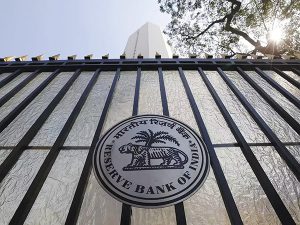Bloomberg
India’s central bank is working towards a phased introduction of a digital currency and will put forth a final design after it has conducted large scale pilot projects.
The Reserve Bank of India (RBI) is exploring the option of implementation of an account-based central bank digital currency or CBDC for the wholesale segment and token-based currency for the retail sector, it said in a paper. The digital currency will be referred to as the e-rupee and will provide an additional option to all the available forms of money, it said.
Cash-dependent India is joining countries including China in pushing forward with digital versions of their currencies as they look to harness new technologies to make transactions and payments more efficient. In her budget speech in February, Finance Minister Nirmala Sitharaman said the RBI would launch the digital currency this year.
“As there are multiple compelling motivations for the introduction of CBDCs, the RBI is currently engaged in working towards a phased implementation strategy, going step by step through various stages of pilots followed by the final launch,†the paper said.
The RBI will soon kick off a limited pilot launch for the e-rupee.
The “CBDC holds a lot of promises by way of ensuring transparency, and low cost of operation among other benefits and the potential to expand the existing payment systems to address the needs of a wider category of users,†the RBI said.
In the note the RBI acknowledged that privacy and data protection were a matter of concern when it comes to
designing CBDCs.
“Ensuring anonymity for a digital currency particularly represents a challenge, as all digital transactions leave a trail. Clearly, the degree of anonymity would be a key design decision for any CBDC and there has been significant debate on this issue,†the note said.
“In a rather roundabout way, the RBI acknowledges India’s love for crypto by saying that CBDCs will provide the public with the benefits and features of crypto without the associated risks,†said Rajagopal Menon, vice president at crypto exchange, WazirX.
India has had a hot and cold relationship with crypto assets. In 2018 the RBI had cut crypto startups from the country’s payment network and earlier this year India announced a new crypto tax regime, under which a 1% transactoinal tax has decimated volumes on crypto exhchanges as they are down by over 90% since the start of the year.
 The Gulf Time Newspaper One of the finest business newspapers in the UAE brought to you by our professional writers and editors.
The Gulf Time Newspaper One of the finest business newspapers in the UAE brought to you by our professional writers and editors.
